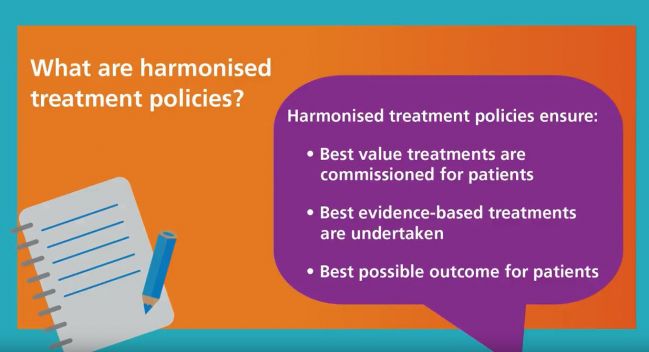
Our Policy Development and Harmonisation Solution
Harnessing and harmonising the policies and pathways that underpin key services forms an essential foundation for successful system partnerships, joined-up care, equitable patient access and improvements in population health.
Arden & GEM delivers both an end-to-end solution as well as modular service provision which is tailored to meet the exact needs of our clients. We provide support spanning 13 service elements that are fundamental to successful policy foundation, development and management
Policy Foundation
SEE MORE
Our support enables your ICS, and component organisations, to understand your readiness to make system-wide policy. By reviewing your existing clinical commissioning policy development process and governance arrangements we provide recommendations to ensure that future policy development reflects system-wide decision criteria and priorities.
Using case studies and learning from Judicial Reviews, we also provide system-wide organisational development that enhances executive understanding of the need for good governance to support the creation of healthcare policy. In addition, we will help you to identify, typify and measure the risks inherent in the governance review process, providing a framework for rapid and rational identification of issues and when they transfer to risk.
We will help you ensure your organisation is fit for purpose, able to meet the challenges established in the NHS Long Term Plan and is best placed to meet the demands of your local population. This will enable you to effectively lead change, direct service improvement initiatives, engage and motivate staff, develop their talents and improve their potential. Ultimately, you will understand your context and culture, taking a systems approach and enabling your staff to design and deliver high quality care.

Delivering robust decision-making by incorporating an ethical framework in commissioning processes more
26/01/2022
SEE MORE
To ensure consistent policy decisions across all types of health and social care interventions, system-wide clinical policy needs to be based on a fair and transparent ethical framework and decision criteria.
We support ICS partners and stakeholders to collectively review the values and decision criteria that provide a common backbone for clinical policy commissioning and implementation. This review and engagement process also empowers stakeholders to agree and update the decision criteria for clinical policy decisions based on ethical principles and the Triple Aim values.
To maximise your efforts in tackling health inequalities, we will help you to integrate your ethical framework with evidence of clinical/social effectiveness, evidence of cost-effectiveness and trade-offs between equity and efficiency.
We will help you identify where applying an ethical framework can provide legitimate, publicly acceptable decisions as well as demonstrating which frameworks offer genuine value for your system and its population.

Delivering robust decision-making by incorporating an ethical framework in commissioning processes more
26/01/2022
SEE MORE
We provide unrivalled experience of supporting policy mapping and utilising policy to make complex, high risk decisions. We have developed a unique, forensic approach to identifying weaknesses, strengths and potential loopholes within commissioning and strategic policy. Crucially, we provide a wealth of experience of matching policies to circumstances, both clinical and strategic, identifying and consulting key stakeholders to minimise risk.
Recommendations and requirements across multiple policies can create confusion and risk as well as inhibiting implementation, understanding and adherence, and hindering the delivery of clinically effective guideline-based care. We will work with you to prioritise and develop a consensus model to harmonise and integrate recommendations from multiple policies in order to minimise risk and enhance understanding of targets and national requirements.
Policy Development
SEE MORE
Our experience of policy implementation and clinical audit delivers expertise in drafting clinical policy which utilises patient selection criteria to ensure transparency and objectivity, as well as reflecting the decision criteria adopted by each health system. This promotes equity of access to the individual care intervention for all patients living within the ICS, based on clinical need and regardless of the provider or their personal characteristics.
We can develop new, or harmonise existing, policies/pathways for each clinical treatment or commissioning area, providing consistent policies across the ICS to support reductions in unwarranted variation and place the focus on evidence-based patient care.
We work collaboratively with you to develop the formal written policies required to bring clarity to strategic and operational requirements and deliver consistency to day-to-day practices. Our support delivers a common format and approval structure for policies, helping to ensure that policies and procedures are current and reflect your organisational identity and approach. This will help you to improve the quality of your work and increase the successful achievement of objectives.
SEE MORE
It is vital that decision makers have the best evidence available when planning the commissioning of future healthcare services and treatments.
Our unique, robust and defensible methodology has delivered over 600 rapid evidence reviews to support NHS organisations make clinical commissioning decisions at both a national and local level.
We work with you to develop a research scope which is tailored to your individual challenge, before searching and selecting the best quality evidence using established standardised processes for identifying, appraising and applying evidence, extracting data and synthesising the results. Once complete, we draft recommended commissioning options utilising our structured and rigorous search.
SEE MORE
Financial impact modelling is a process for synthesising and comparing the costs and benefits of healthcare services or treatments in order to make decisions about which interventions may lead to the best patient and commissioning outcomes.
Our financial expertise enables evidence reviews to be enhanced via the inclusion of a financial and patient impact model for any intervention or treatment. This key component of the health economic evaluation process enables systems to make better informed clinical policy decisions which, in addition to clinical and cost effectiveness, also reflect health outcomes and realistic financial implications (which can often be overestimated using just current activity analysis). We are also experienced in placing your financial decisions in a contemporary economic context, particularly in understanding NICE economic reviews and their impact on decision making.
SEE MORE
Successful policy creation and decision making relies on co-operative contributions and support from a wide range of stakeholders. Some will support and others may oppose, some will see opportunity where others see threat, and some will just be indifferent – but the key to success is understanding and addressing all views.
We will help you to create a tailored engagement approach that identifies and manages relationships with all stakeholders that hold an interest in the programme and have responsibility for leading, directing, influencing and motivating others towards your desired outcome. In addition to assuring the quality of the evidence review, this also allows valuable clinical and patient insight and context to be considered by policy makers. Our Communications and Engagement team also provide the capacity and expertise required to seek the views of patients and their families directly using public consultation, survey, interview or focus group approaches.
We aim to address the needs of 'the system’, its component organisations and patients, grounded in a real-life approach, with engagement that is proportionate to the circumstances and inherent risks and impact.
SEE MORE
Completion of equality impact assessments is a legal requirement under race, disability and gender equality legislation. Our equality impact assessments provide a systematic and evidence-based tool which delivers understanding and consideration of the likely impact policy changes could have on different groups of people.
Our experts deliver an equality focussed review of all policies, giving due regard to the principles of the Public Sector Equality Duty. This highlights the potential risks around each policy (or change) and makes, where required, recommendations for mitigations or further work for improvements.
SEE MORE
To ensure local needs and challenges are fully addressed, prioritisation and refinement adaptations can support the process of delivering a solid evidence base for policy.
We have valuable experience of working with clinicians and patient representatives to identify subgroups of patients who might be considered to have the greatest need – or the greatest capacity to benefit from – a particular treatment. This enables prioritisation where treatments cannot be made available to all patients due to resource constraints including limited supply from manufacturers, the cost of treatment or limited supply of staff or hospital admission slots.
Prioritisation processes can be benchmarked against a locally agreed multi-criteria decision framework, identifying areas of best practice and improvement and the need for greater public and patient engagement.
Policy Management
SEE MORE
Successfully delivering a change in clinical practice requires more than just the distribution of new clinical guidelines or a care pathway. It is essential to formulate a clear strategy for dissemination, implementation and evaluation that will span multiple levels of healthcare delivery and enable you to achieve integration and adoption.
Our support provides health systems with the structure and expertise required to embed change within clinical practice by successfully managing all organisations and stakeholders towards a single vision for improving patient care. We can help you to develop and implement appropriate information and education packages that prepare all stakeholders for change, while ensuring the process is rooted in the principles of stewardship and delivery of the Triple Aim duty.
SEE MORE
Our experienced team provides Individual Funding Request (IFR) and Prior Approval process support to a large customer base.
We provide an end-to-end service to manage and administer IFRs, from receipt to decision and notification, as well as case reviews. This includes support with:
- Co-ordinating and facilitating IFR panels, including sourcing information, obtaining specialist advice, answering policy questions and gathering evidence from clinicians
- Monitoring to ensure policies and procedures are followed to reduce workload and risk
- Comprehensive reporting information
- Management and administration of the Prior Approval process, applying the policy criteria and ensuring timeframes are adhered to
- Support with co-ordinating clinical commissioning policy development and the review process, including identifying best practice, liaising with Public Health England, producing and circulating relevant documentation, assisting policy development groups and managing the policy through the commissioning body
- Access to Blueteq® software, cutting the administrative burden and reducing paper use – this remotely accessible, secure technology provides a holistic approach to case management, supporting data collection and presentation, audit trails, decision monitoring, reporting and communication with stakeholders.

Supporting an East Midlands healthcare commissioner through Judicial Review more
02/02/2022
SEE MORE
Clinical audit and quality assessment provides a systematic way of reviewing current practice and compliance with existing policy.
Our service will help to provide assurance to your ICS that healthcare interventions are being provided in line with the systems, processes and standards that are in place, while improving patient care and outcomes by identifying any potential improvements and minimising potential risk.
We have extensive experience in conducting, monitoring and evaluating clinical audits and provide a thorough quality assurance programme. Our approach includes novel methodology and detailed reporting that provides feedback and recommendations to ensure pathways of care are robust and best placed for successful delivery.

Identifying opportunities to improve services via a clinical audit of commissioning policies more
13/03/2022
SEE MORE
To maximise the benefits available from policy development and harmonisation it is essential to closely monitor and measure the implementation of clinical change.
In addition to effective communication with all stakeholders affected by a clinical treatment, it is also vitally important that systems and processes are adopted or adapted to reflect new policies. We support the implementation of clinical change via the use of Blueteq® - an online system designed to aid compliance and bring accountability amongst those on the front line of healthcare delivery. Our clinical systems experts will develop and upload Blueteq® system templates capable of driving behaviour in line with new policies. We will also deliver user training to providers and undertake the ongoing monitoring of these systems to provide vital information on compliance.
Achieving the best clinical outcomes and ensuring best value
As Integrated Care Systems (ICSs) become statutory bodies they will hold local responsibility for improving population health within the resources available, identifying health needs and tackling variation, and reducing inequalities in healthcare access and outcomes. To meet this challenge, and the new Triple Aim duty of better health for everyone, better care for all patients and sustainable NHS services, ICS leaders must consider their state of readiness in three areas that are fundamental to successfully integrating care:
- Identifying system resource challenges which limit the introduction of new treatments and interventions for patients
- Agreeing common decision criteria to support the whole system to prioritise funding between different clinical treatments and/or interventions
- Ensuring clinical policies are supported and implemented by all ICS stakeholder organisations.
Arden & GEM’s Policy Development and Harmonisation service can support you to appraise your options for transformation and integration. We understand the current changes in commissioning and can provide solutions with proven mechanisms for successfully integrating care. We support population based clinical commissioning through our unrivalled expertise in Individual Funding Requests (IFRs), policy harmonisation, health economic modelling, evidence of clinical and cost effectiveness reviews, ethical decision making and corporate governance.
We can help you to achieve health improvement, for those patients most in need, within the resources available by:
• Ensuring robust policy development processes are
in place
• Providing rapid access to proven evidence-based
clinical interventions
• Implementing prioritised treatments
• Managing requests for treatments fairly across the
whole system.
We would welcome the opportunity to discuss how our Policy Development and Harmonisation solution can support your organisation to deliver its Triple Aim duty.



